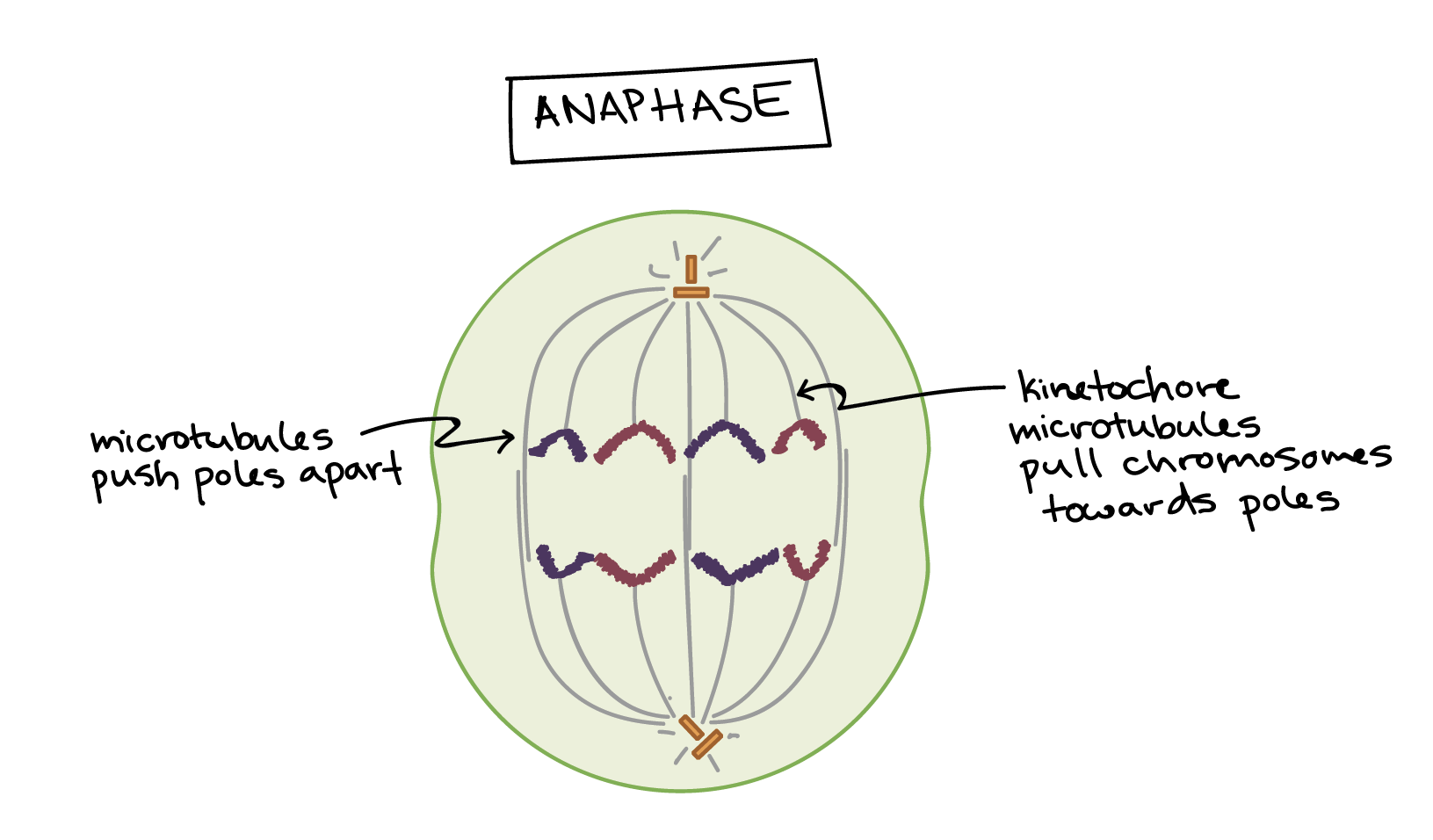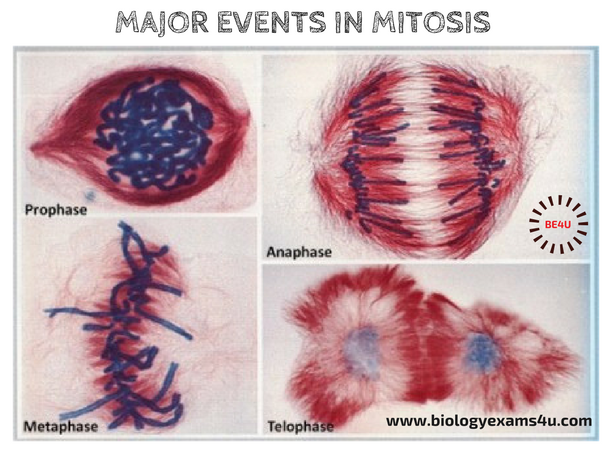Mitosis is the process by which a single cell divides into two identical daughter cells. It is a crucial part of the cell cycle, which is the series of events that cells go through as they grow and divide. Mitosis occurs in all eukaryotic organisms, including plants, animals, and fungi. There are four main stages of mitosis: prophase, metaphase, anaphase, and telophase.
During prophase, the first stage of mitosis, the cell's nucleus begins to condense and the nucleolus disappears. The chromatin, which is the DNA and protein material that makes up the cell's genetic material, also begins to condense into visible chromosomes. The mitotic spindle, a network of protein fibers, begins to form and will eventually help to separate the chromosomes during the next stage.
During metaphase, the second stage of mitosis, the chromosomes line up at the equator of the cell, forming a structure called the metaphase plate. The mitotic spindle fibers attach to the centromere of each chromosome, which is the point at which the two sister chromatids are joined.
Anaphase, the third stage of mitosis, is marked by the separation of the sister chromatids. The mitotic spindle fibers contract, pulling the chromosomes to opposite poles of the cell. This results in the formation of two identical sets of chromosomes, one at each pole of the cell.
Finally, during telophase, the fourth and final stage of mitosis, the cell begins to divide into two daughter cells. A new nuclear envelope forms around each set of chromosomes, and a new nucleolus forms in each nucleus. A cell plate, also called the cleavage furrow, forms in the middle of the cell, eventually dividing the cell into two.
Overall, the four main stages of mitosis are critical for ensuring that each daughter cell receives an exact copy of the genetic material of the parent cell. This process is vital for maintaining the integrity of the genome and ensuring the proper functioning of the organism.







